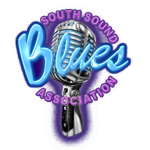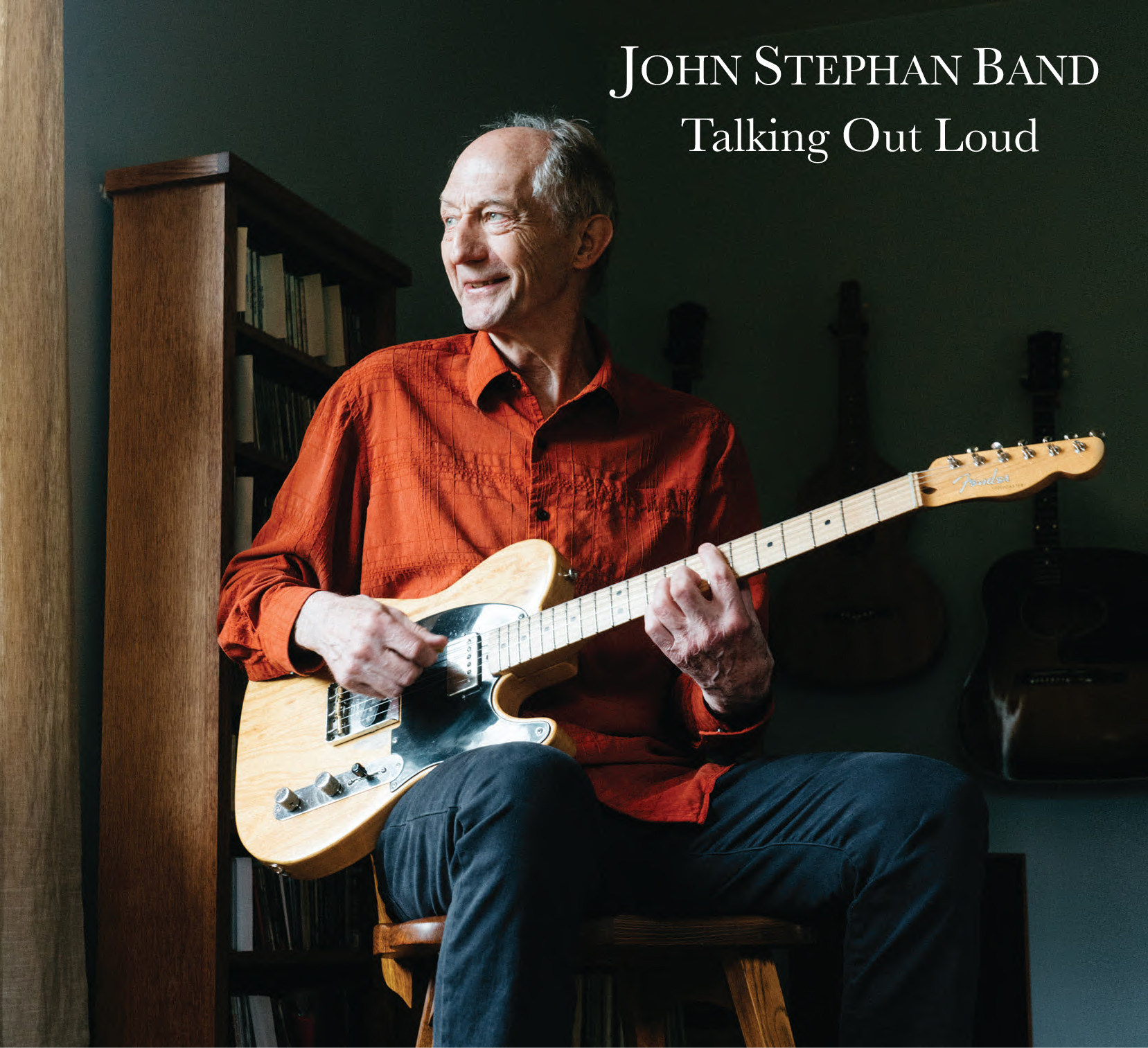Article by Kevin Cummings – interview with John Stephan
This month, the South Sound Blues Association is pleased to present the John Stephan Band (JSB) for our members and subscribers to learn about.
JSB consists of Zac Stoldt on drums, Walter White (not the one from Breaking Bad) on bass and vocals, Billy Reed on keyboard and vocals and John Stephan on guitar and vocals; John also writes most of the songs for the band.
Zak was born in Spokane, Washington and raised in southern Indiana. At 9-years old he started piano lessons and was captivated by the music of Duke Ellington, Gene Krupa, and Stevie Wonder. At age 11, drums entered the picture and became his primary focus. As a teenager Zak played in local bands and toured for two summers before attending Indiana University. After a brief stint as a tech worker, he re-focused himself on his love of music. In 2021 he moved to Los Angeles and studied music with Dave Elitch. In 2022 he moved to Tacoma and found himself diving back into blues, jazz, and funk. He currently performs with Lorenzo Farrell in the organ trio, The Queen Street Gang and in 2024 he joined the John Stephan Band and played drums on the record “Talking Out Loud”. His musical inspiration comes from ’60s music of New Orleans and Memphis, played by drummers such as Zigaboo Modeliste, Al Jackson, Jr. and Steve Jordan.
Walter was born and raised in Chicago. Originally an oboist, then tenor saxophonist, Walter worked hard to become a first rate bassist. He has played many styles, including African and World music, Blues and Jazz. A veteran of Alice Stuart’s band, he currently also plays bass with legendary Seattle guitarist Jack Cook.
Billy was born in Flint, Michigan, and has been a go-to keyboard player in the Seattle area for many years. He has been a member of the Kathi McDonald Band, Town Hall Brawl, Scott E. Lind Band, Jack Cook and the Phantoms of Soul, Monster Road, The Pourboys, Stoned America, Cory McDaniel, Lone State, All Stars, No Stripes, Hugh’s Blues, Jeff and the Jet City Fliers, and Mulebone, to mention a few. In 2023, the members of the Washington Blues Society honored Billy with a Best Keyboard Player of the Year award.
John was born and raised in Palmer, Alask, ending up in Seattle after being on the road playing music in California and the Midwest. My first road trip outside of Alaska was from Anchorage to Virginia Beach and North Carolina, in 1967. John served in the army from 1968 – 1970. He then moved to San Francisco and was on the road in California and the Midwest through 1974, that’s when he moved to Seattle and stayed.
Growing up, John listened to a variety of music. Some of his favorites were Louis Armstrong, early jazz, blues, Hank Williams and Lead Belly. His mother played pop, classical and spirituals on piano and organ, his father played harmonica: ethnic, country and folk music, his four older sisters shared their rock and roll 45’s and gave him a Lead Belly record for his 11th birthday. Music was in his blood as his family had played music for generations. He even studied music theory in high school and college.
He began performing with a friend, Gerry Peavy, as a duo in 1962 and later added drums and bass. “Gerry had lots of blues records and we played everything from pop classics to rock and roll for school dances” said John. He always liked slide guitar and heard country steel and Hawaiian style before country blues. He made his first slide guitar from a moose bone. Early on he couldn’t figure out open tuning, but eventually figured it out by listening to “Guitar Rag” and other early recordings.
John played for parties at home and “played “Love Me Tender” in “show and tell” at school after seeing Elvis on TV in 1956. Two girls cried!”. His first real gig was at the Matanuska River Lodge in 1960 at age 12 with my new electric guitar. The first band he was in was Gerry Peavey and Doug Bartko in 1962. In 1965-6 he got his own band together with Skip Konte in 1966. It was called Blue Chip Stock and won Battle of the Bands and we played a lot of gigs.
John has written poetry, music, and songs since his youth. He says he “tends to write lyrics first, I don’t write “riff oriented” music”. He usually edits his lyrics a lot; however, sometimes he keeps with the original words from the first draft. He writes about a variety of subjects and tries to avoid cliches. Some of his poetry ends up as lyrics and some doesn’t; the melodies just happen after the words.
He won a school talent show in about 1960, a band of GI’s from Fort Richardson played after me and insisted that he sit in with them. This was his first time playing with a rock and roll band live with big Fender amps. His classmates went wild and he was hooked! He played with an African group, Je Ka Jo, from 1985 – 1991 and is grateful to band leader Jon Kertzer for introducing him to Afro-pop music.
One of his great memories was seeing Howlin’ Wolf at Sick’s Stadium in Seattle in 1975 with John Lee Hooker and Albert Collins opening, that was a turning point for him. Upon seeing Albert Collins, he thought he’d never play with anyone that great – a few months later he got to play with him and Little Bill Englehart. Isaac Scott has always been a major musical influence for him. me.
John became a skillful luthier, repairing and restoring guitars – it was his sole day job. His is now retired from that and is focusing on music full time. He feels that his transformation into a singer-songwriter has been the most important facet of his musical journey. “Good guitar players are a dime a dozen, being original in my approach has sustained me,” he says; “I didn’t really begin to write and perform a lot of original music until around 1980 when I played with the Matinee Idols with Greg “Smokey” Nowak. I started my own band in 2000 which ended my “side musician phase. I’ve never been happier. Performing original music is most meaningful”.
My advice to anyone interested in music as a pursuit is to believe in themselves, no matter what the difficulties or challenges. Develop your individual style and strengths and work on your deficiencies. Don’t take no for an answer. Follow your passion and persist.
Currently he is focused on promoting his new album, Talking Out Loud, and getting gigs. He had a bout with cancer about 4 years ago, then the Covid epidemic shut the local music business down for a while. His long-time bass player, Tom Roesch, passed away and it had “quite an effect on me; I’m rebuilding from all of that. I hope to continue as long as possible”.

